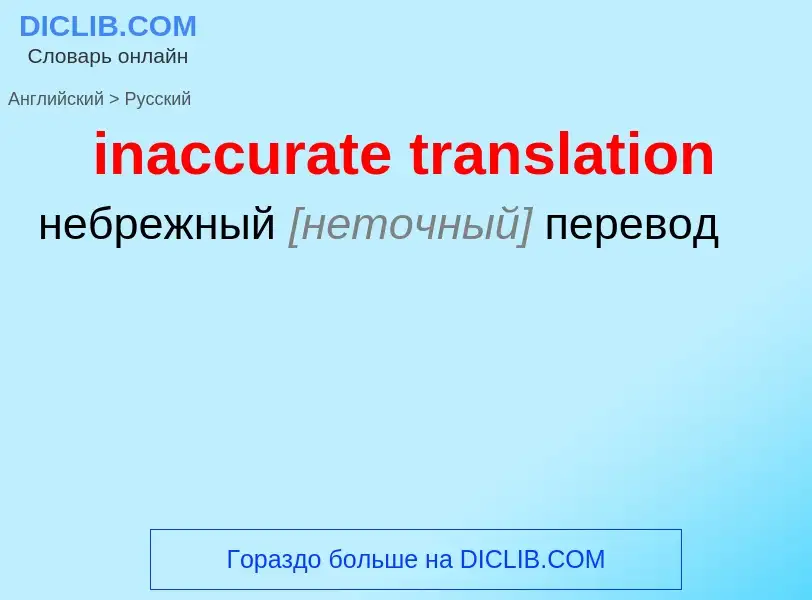inaccurate translation - traducción al ruso
[mə'ʃi:n|()trænz'leiʃ(ə)n-{mə'ʃi:n}()træns'leiʃ(ə)n]
вычислительная техника
автоматизированный
машинный перевод
Definición
1) Передача на дальнее расстояние речи, музыки, изображения средствами радио или телевидения, осуществляемая непосредственно с места действия.
2) То, что передается таким способом.
Wikipedia
Translation studies is an academic interdiscipline dealing with the systematic study of the theory, description and application of translation, interpreting, and localization. As an interdiscipline, translation studies borrows much from the various fields of study that support translation. These include comparative literature, computer science, history, linguistics, philology, philosophy, semiotics, and terminology.
The term "translation studies" was coined by the Amsterdam-based American scholar James S. Holmes in his 1972 paper "The name and nature of translation studies", which is considered a foundational statement for the discipline. Writers in English occasionally use the term "translatology" (and less commonly "traductology") to refer to translation studies, and the corresponding French term for the discipline is usually traductologie (as in the Société Française de Traductologie). In the United States, there is a preference for the term "translation and interpreting studies" (as in the American Translation and Interpreting Studies Association), although European tradition includes interpreting within translation studies (as in the European Society for Translation Studies).

![沒有進入}}" from machine translation in [[Bali, Indonesia]]. The broken Chinese sentence sounds like "there does not exist an entry" or "have not entered yet". 沒有進入}}" from machine translation in [[Bali, Indonesia]]. The broken Chinese sentence sounds like "there does not exist an entry" or "have not entered yet".](https://commons.wikimedia.org/wiki/Special:FilePath/Machine translation in Bali.jpg?width=200)
![鸡枞}}" (''[[Macrolepiota albuminosa]]'') being rendered as "Wikipedia". 鸡枞}}" (''[[Macrolepiota albuminosa]]'') being rendered as "Wikipedia".](https://commons.wikimedia.org/wiki/Special:FilePath/Stir Fried Wikipedia.jpg?width=200)
